The ocean, vast and hypnotic, houses some of the most fascinating and intelligent creatures on our planet. While we’re captivated by their beauty and diversity, the level of cognitive prowess in some of these marine denizens can be downright astonishing. These creatures defy our expectations and challenge our understanding of animal intelligence. Dive with us as we explore ten ocean animals whose brains are far more advanced than we’d ever imagined.
1. Sea Turtle
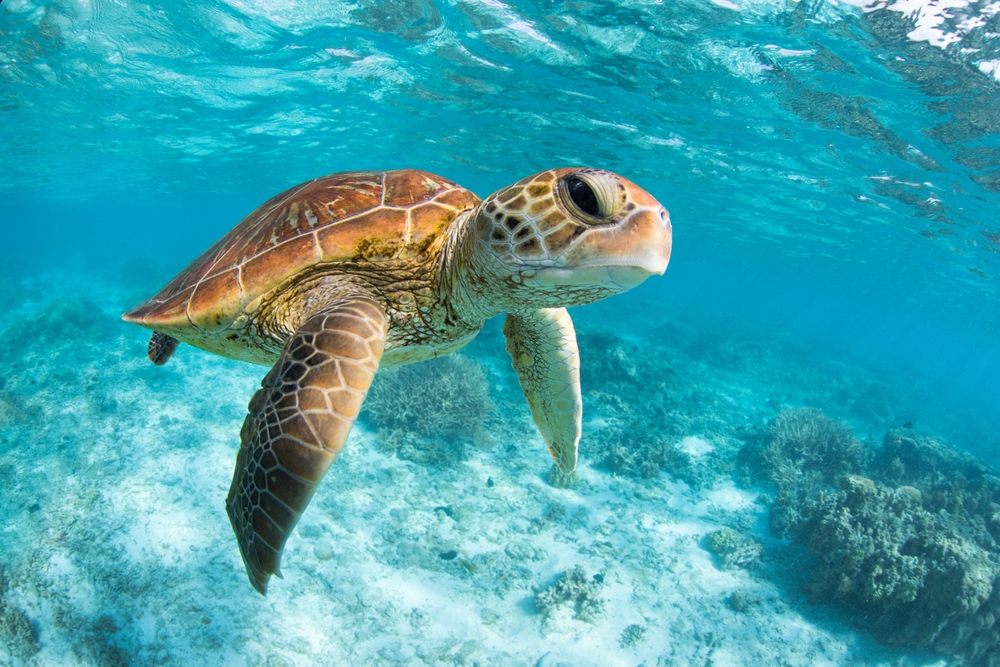
Sea turtles, ancient navigators of the ocean, possess a remarkable ability to traverse vast distances with precision, according to Smithsonian Ocean. Their navigation skills are attributed to a combination of geomagnetic sense and environmental cues, allowing them to return to the beaches where they were born to lay eggs. This migratory prowess reflects a level of spatial intelligence that is essential for their survival in the ever-changing marine environment.
In addition to their navigation abilities, sea turtles exhibit problem-solving skills and adaptability. While they spend most of their lives in the open ocean, they must navigate human threats and environmental changes with resilience. Their long lifespan and migratory habits offer insight into the long-term impacts of climate change on marine life. Sea turtles embody the wisdom of the ocean, a testament to the intelligence woven into the very fabric of marine ecosystems.
2. Dolphin
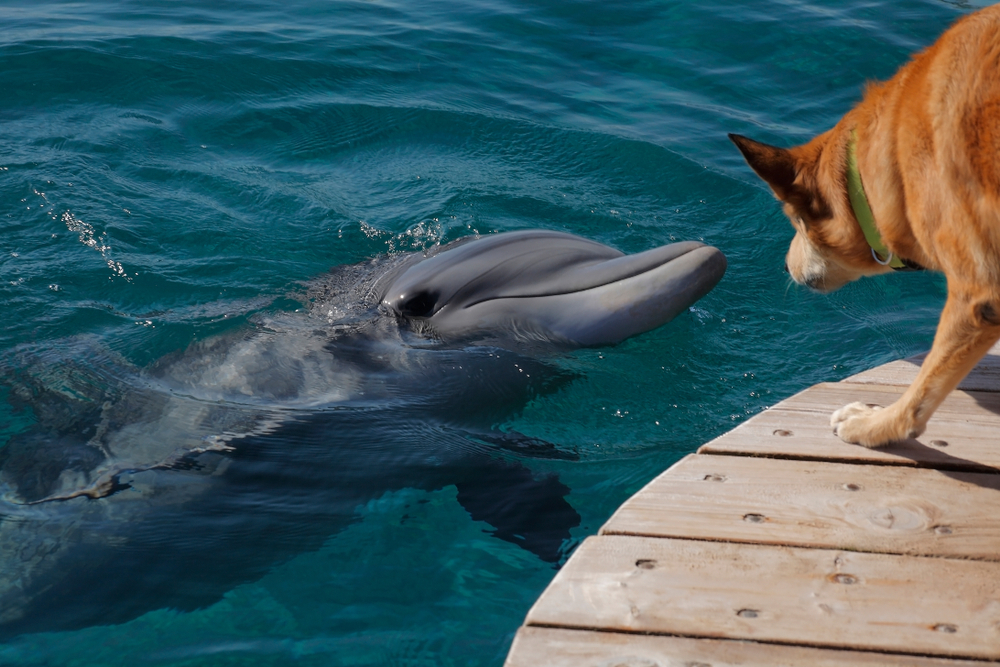
Dolphins are renowned for their playful behavior and friendly demeanor, often engaging with humans and other species in the wild. But beneath their charismatic exterior lies an intelligence that rivals that of great apes. Dolphins exhibit complex social structures, demonstrate self-awareness, and have even been observed using tools to hunt. The intriguing part is their ability to communicate with each other through a complex system of clicks and whistles, akin to a sophisticated language.
Their ability to learn and understand commands is well-documented, but dolphins also demonstrate behaviors that suggest empathy and problem-solving skills. In the wild, they’ve been known to assist sick or injured pod members, showcasing a level of altruism uncommon in the animal kingdom. This capacity for cooperation and emotional intelligence is one reason they’re often hailed as the ocean’s smartest mammals. Their intelligence is not only a biological marvel but also a profound reflection of nature’s intricacies.
3. Cuttlefish
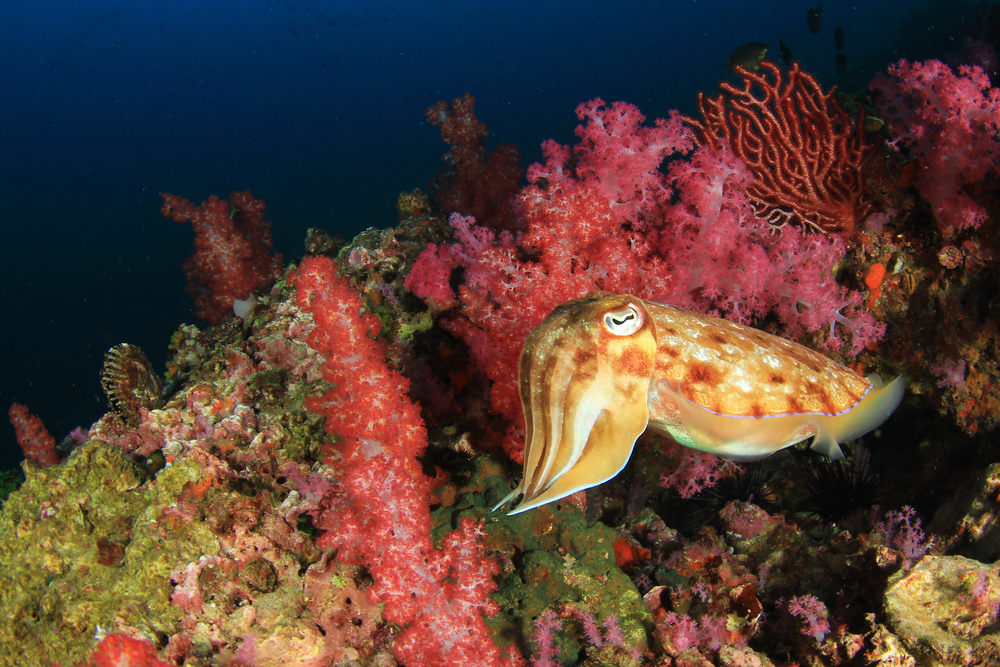
Cuttlefish, the chameleons of the sea, are renowned for their incredible ability to change color and skin texture in an instant. These cephalopods use their adaptive prowess to communicate, hunt, and evade predators, quickly altering their appearance to blend into their surroundings or signal to others. According to research from the University of Cambridge, cuttlefish possess an impressive working memory, allowing them to remember specific events and experiences.
Their intelligence is further highlighted by their ability to learn from their environment and adapt their behavior accordingly. Cuttlefish have been observed navigating through mazes and solving puzzles, indicating a level of spatial awareness and problem-solving once thought beyond their capabilities. Their neural networks, highly developed for their size, coordinate their complex behaviors and sophisticated body language. Cuttlefish show us that intelligence in the animal kingdom comes in many forms, each uniquely tailored to an organism’s needs.
4. Whale
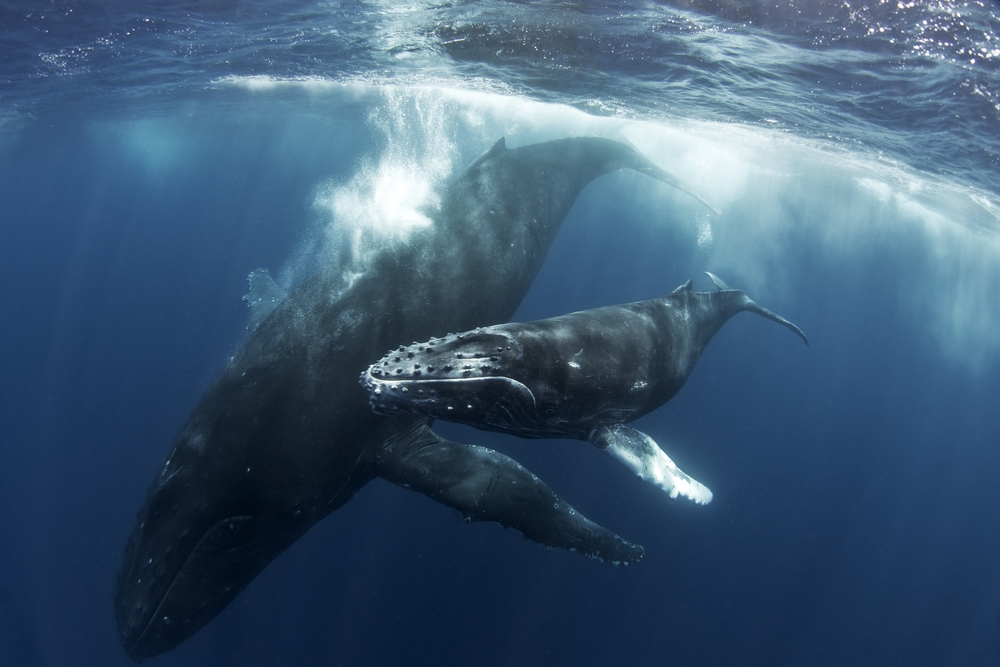
Whales, the gentle giants of the ocean, possess a level of intelligence that matches their immense size. Highly social and communicative, whales use a complex array of vocalizations to interact with one another, a behavior that has captivated scientists for years. Some species of whales, like the humpback, create intricate songs that can last for hours, possibly serving as a form of long-distance communication or social bonding.
Their migratory patterns, spanning thousands of miles, demonstrate a remarkable ability to navigate and adapt to changing environments. Whales form long-lasting social bonds and display behaviors that suggest emotional depth and empathy. These profound connections within pods indicate a complex social structure where cooperation and mutual care are vital. Understanding whale intelligence not only emphasizes their role in marine ecosystems but also highlights the interconnectedness of life on Earth.
5. Manta Ray
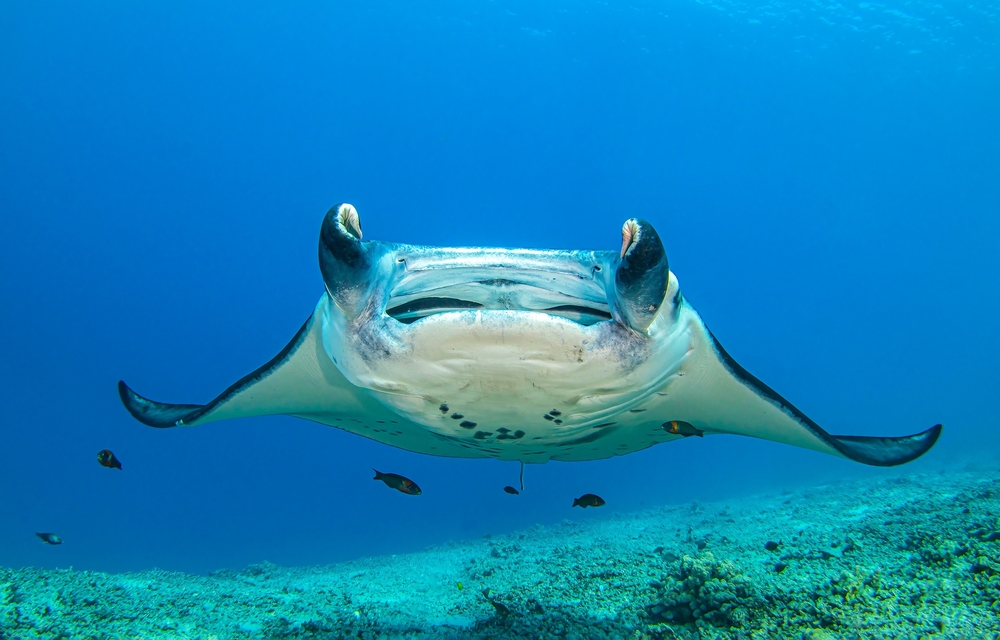
Manta rays are graceful oceanic gliders known for their impressive size and gentle nature. They exhibit a level of intelligence that is both surprising and awe-inspiring. Research from the University of South Florida has found that manta rays exhibit signs of self-awareness, a trait previously attributed mostly to mammals and certain avian species. They recognize themselves in mirrors, suggesting a consciousness that allows for self-recognition and reflection.
In addition to their self-awareness, manta rays display social behaviors and memory capabilities that indicate a complex cognitive landscape. They form large feeding aggregations, sometimes numbering in the hundreds, where they coordinate movements and share information about plentiful feeding grounds. This social intelligence, coupled with their ability to navigate vast ocean expanses, underscores their sophisticated mental capacities. As we continue to study manta rays, we unravel the mysteries of their advanced cognition and their role in the marine ecosystem.
6. Sea Lion
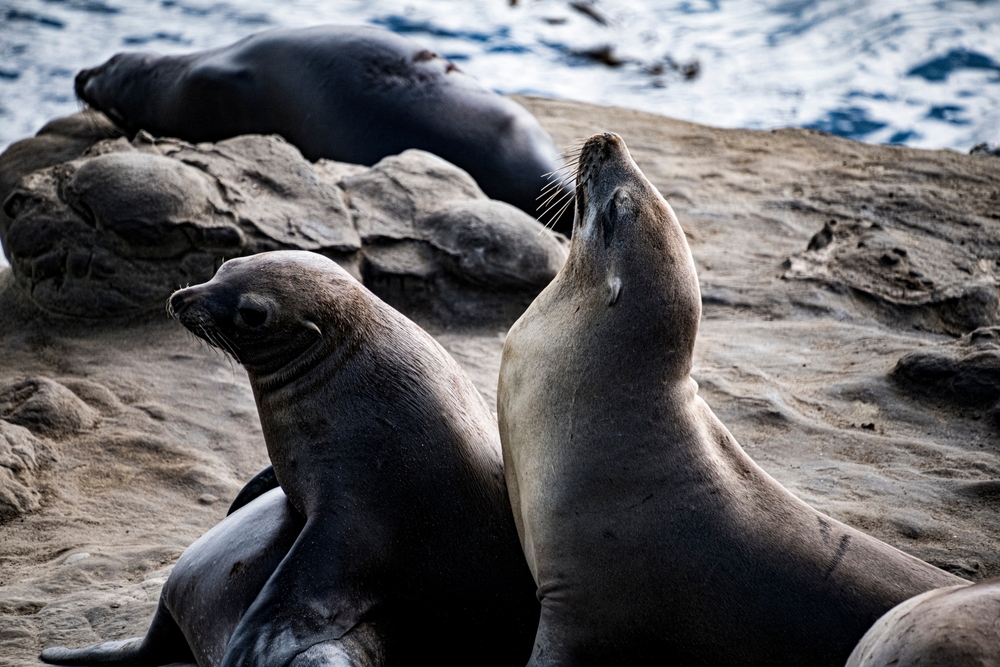
Sea lions are the entertainers of the sea, often seen performing tricks in aquariums and zoos. But their flair for entertainment is rooted in a natural intelligence that allows them to learn complex behaviors. In the wild, sea lions exhibit strong problem-solving skills and have been known to cooperate in groups to hunt and fend off predators. Their social structure is intricate, with dominant males overseeing groups of females and juveniles in a system that requires adaptability and leadership.
Their cognitive abilities extend to a remarkable understanding of human gestures and commands, which they can learn with relative ease. Sea lions have been trained to assist in military operations, showcasing their ability to work alongside humans in complex tasks. Their playful nature masks a sophisticated intelligence that helps them thrive in diverse marine environments. As we engage with these charismatic creatures, we gain insight into the depth of their cognitive world.
7. Cleaner Wrasse
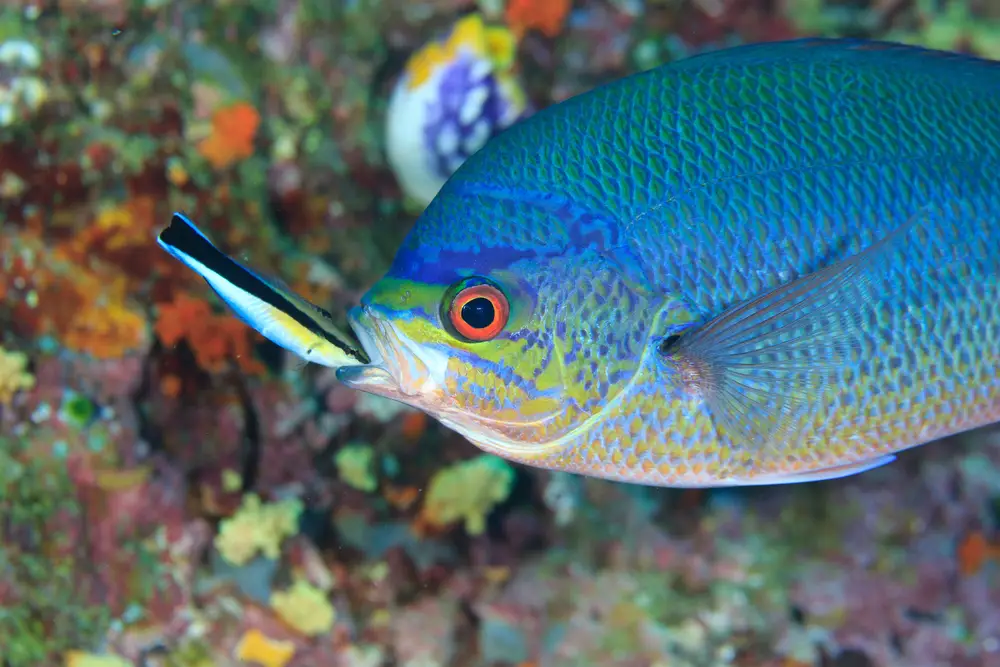
The small but mighty cleaner wrasse is a fish known for its unique role within coral reef ecosystems. It operates cleaning stations where larger fish come to have parasites removed, a behavior that requires a high degree of social intelligence. These fish engage in complex communication with their clients, using body language to signal availability and intent. Their role as reef custodians highlights their sophisticated understanding of social interactions and mutualism in the animal kingdom.
Cleaner wrasses have also demonstrated self-awareness in mirror tests, an extraordinary feat for a fish. This ability to recognize themselves suggests a level of consciousness that challenges our understanding of fish cognition. Their social savvy is not only integral to their survival but also vital to the health of coral reef communities. Cleaner wrasse remind us that intelligence in the ocean is as diverse as the ecosystems they inhabit.
8. Squid
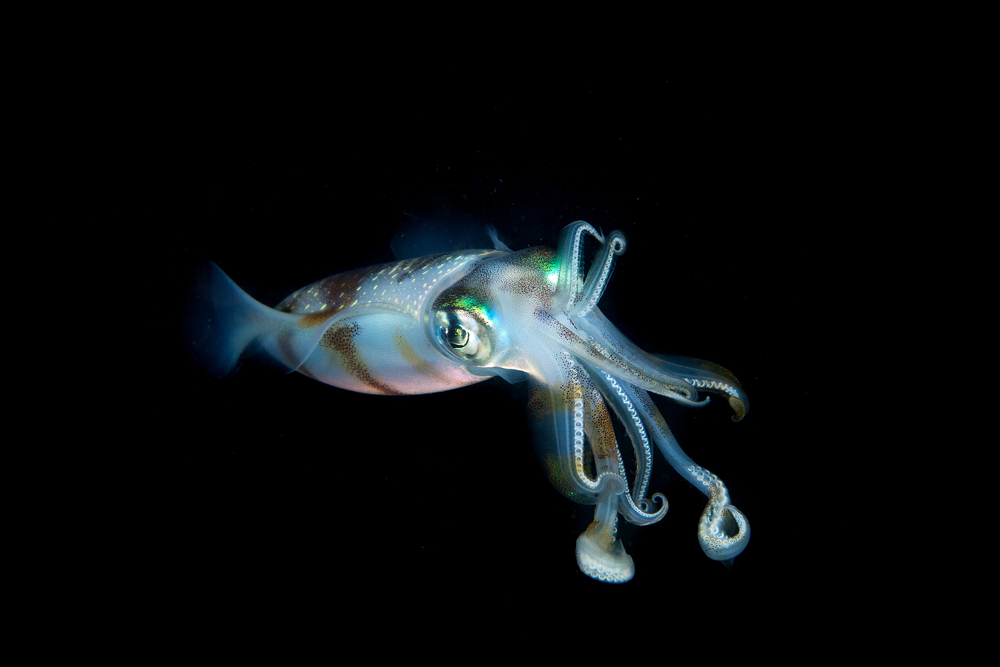
Squid, like their cephalopod cousins, are masters of adaptation and intelligence. Their ability to communicate through dynamic color changes is just one facet of their cognitive capabilities. In research settings, squid have exhibited learning and memory skills, adapting their behavior based on past experiences. This ability to learn and adapt quickly makes them formidable predators and survivors in the ocean’s challenging environments.
Squid also engage in complex mating rituals that involve intricate dances and displays, indicating a nuanced understanding of social interactions. Their nervous system, though simpler than that of their relatives, is highly efficient, allowing for rapid responses and coordinated movements. As we study these enigmatic creatures, we uncover the layers of sophistication that define their existence. Squid serve as a reminder of the diverse forms intelligence can take in our oceans.
9. Orca
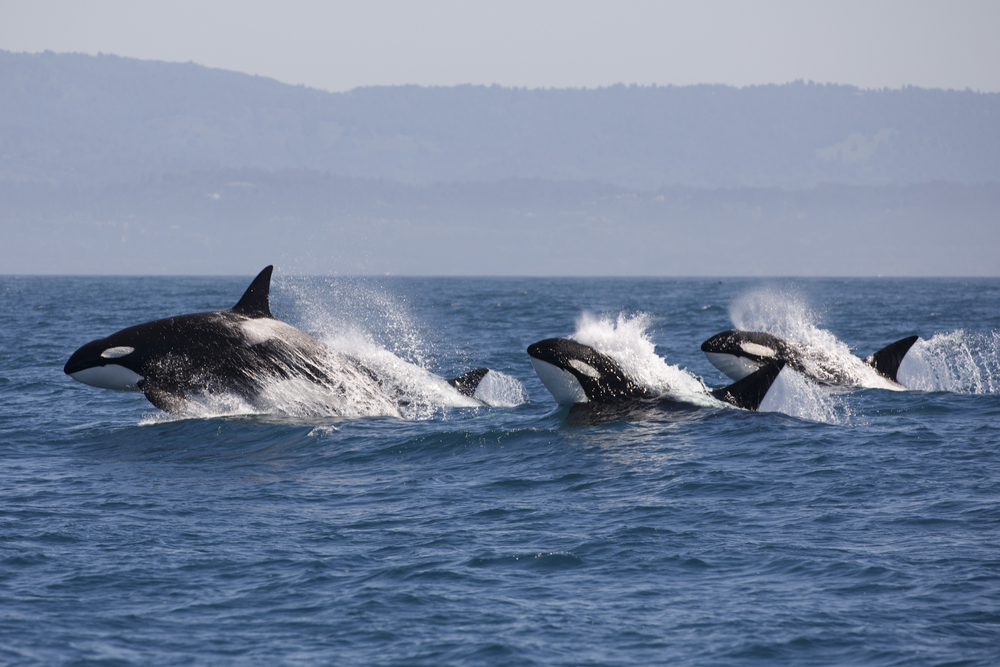
Orcas, or killer whales, are apex predators known for their sophisticated hunting techniques and strong social bonds. Their intelligence is evident in their ability to work collaboratively, employing strategies that vary between pods and environments. These techniques include wave-washing seals off ice floes and beaching themselves temporarily to catch prey, showcasing their adaptability and problem-solving skills. Orcas also communicate through a complex system of vocalizations, with each pod having its unique dialect.
Their social structure is matriarchal, with pods forming tight-knit family units that travel and hunt together. Orcas often form lifelong bonds, demonstrating a deep social intelligence that rivals that of primates. Their emotional depth is evident in their behaviors, such as caring for injured members and mourning the loss of calves. Orcas challenge our perception of the ocean as a cold, indifferent expanse, revealing a world rich with social intricacy and intelligence.
9. Octopus
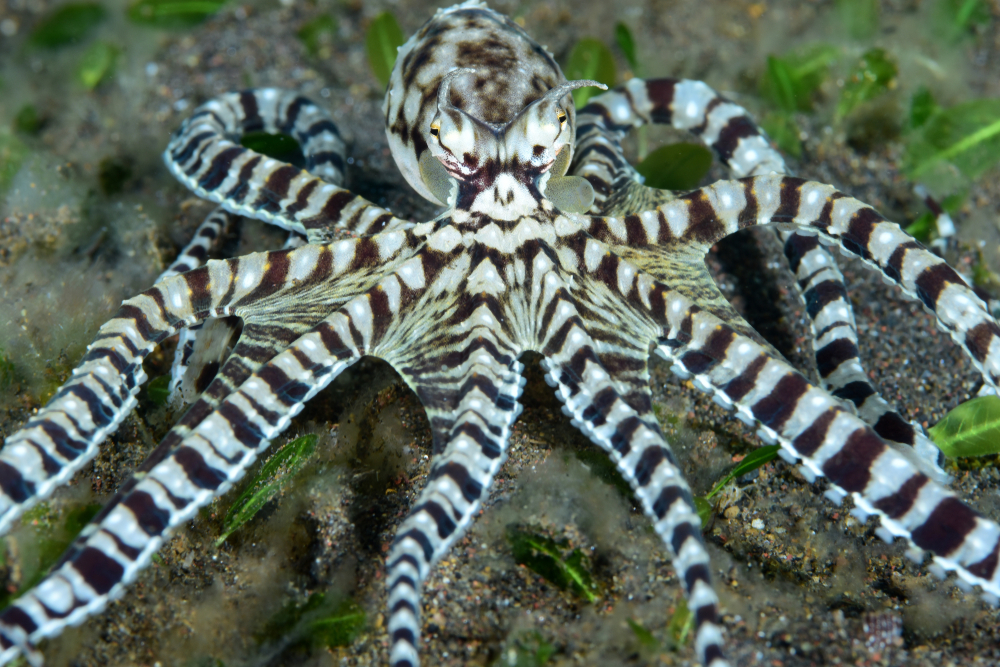
The octopus is a master of disguise and problem-solving, often evading predators through their remarkable ability to change color and texture. But their cognitive abilities go beyond mere survival tactics. According to the Marine Biological Laboratory, octopuses have been observed using tools, a trait once thought to be unique to humans and some primates. Their intelligence is not just an evolutionary quirk; it’s a sophisticated survival strategy.
In laboratory settings, octopuses have been known to solve complex puzzles and escape from supposedly secure tanks. Their curious nature drives them to explore and interact with their environment in ways that suggest a high level of awareness. These cephalopods possess a decentralized nervous system, with each arm capable of acting independently. This unique neural architecture allows them to perform multiple tasks simultaneously, a testament to their extraordinary intelligence.
